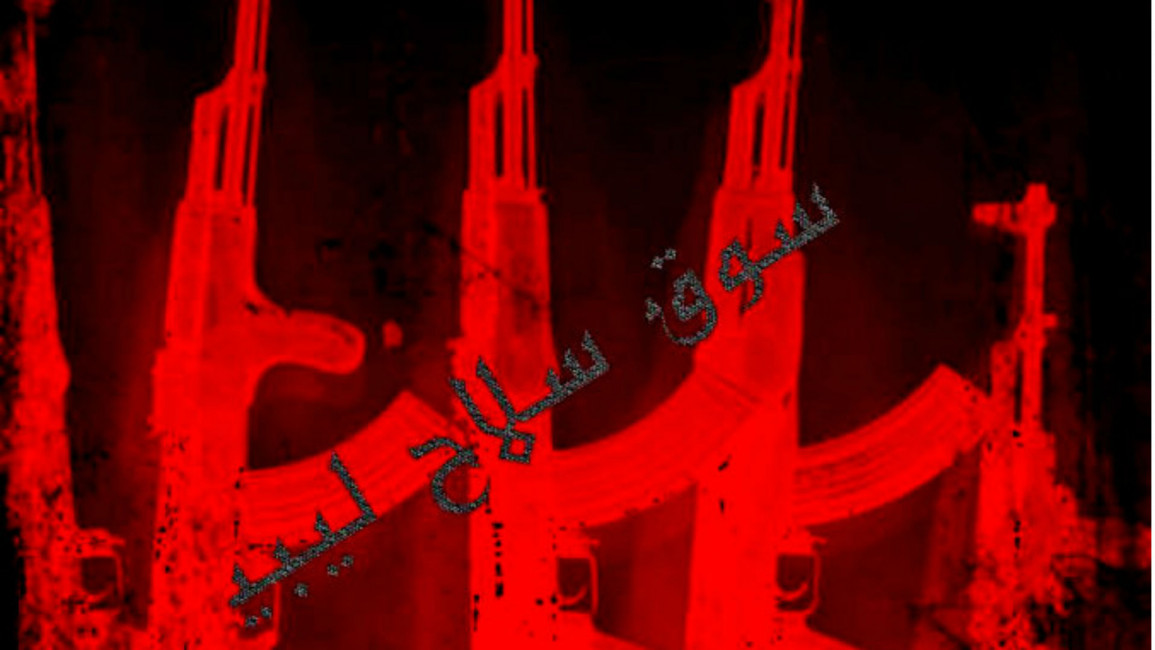The social media gun-runner: Buying Libyan weaponry on Facebook
The social media gun-runner: Buying Libyan weaponry on Facebook
Want to buy a rocket launcher? Try Instagram. Business is booming in Libya's post-Gaddafi arms trade on social media platforms.
2 min read
A Libyan Facebook page uploaded this picture with the caption "Libya Weapons Market" [screenshot]
Militant groups are using social media sites including Facebook and Instagram to get hold of weapons - including rocket launchers and anti tank missiles - a report has found.
Covering September 2014 - March 2016, the study by the Small Arms Survey used data collected by Armament Research Services (ARES) on 1,346 online sales.
The sale of light arms is being conducted on Facebook through closed and private groups, where users can join in order to view and purchase advanced and deadly weaponry.
There is no universally accepted definition of "light arms", however the report covered the sale of shoulder-fired recoilless weapons, portable air-defence systems, grenade launchers and rifles.
Social media users seeking to replenish their arsenal can also be found seen haggling and deliberating over prices.
One shopper commented that LYD 5,000 ($4,000) was the market price for a man-portable air defence system (MANPAD) missile with gripstocks, after a seller claimed that he had received an offer of LYD 6,000 ($4,350) for the same item.
 |
|
| A rocket launcher for sale on social media [Small Arms Survey] |
The would-be buyer also went on to describe how such weapons are "something all the front lines are looking for and don't have enough of".
The sale of illegal arms is in violation of Facebook's terms of service, but this is not the first time that militant groups have used the platform to purchase weaponry.
Earlier this year, a Facebook page was closed down after it was found that militants were using it to advertise and purchase weapons.
Arms dealers from Iraq and Yemen have also been seen to take their stocks to similar social media weapons bazaars.
During the Gaddafi era, black market for weapons in Libya was virtually non-existent, as the dictator maintained a firm grip on arms supplies. Arms imports were constrained, and international sanctions on the country between 1992-2003 ensures that this was even more so.
Following the ousting and death of Muammar Gaddafi in 2011, government weapons stockpiles were raided by rebel factions and opportunists who have used online platforms to market stolen arms.
The majority of the weapons covered by the study were found to have originated from the Warsaw Pact region, including the former Soviet Union and the Russian Federation.


![President Pezeshkian has denounced Israel's attacks on Lebanon [Getty]](/sites/default/files/styles/image_684x385/public/2173482924.jpeg?h=a5f2f23a&itok=q3evVtko)



 Follow the Middle East's top stories in English at The New Arab on Google News
Follow the Middle East's top stories in English at The New Arab on Google News


